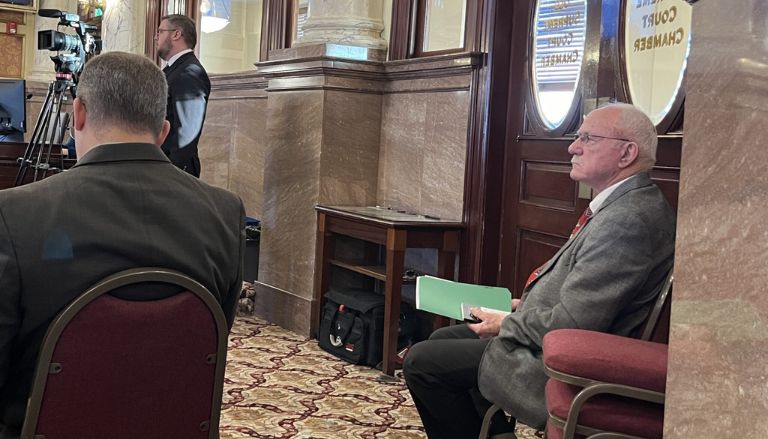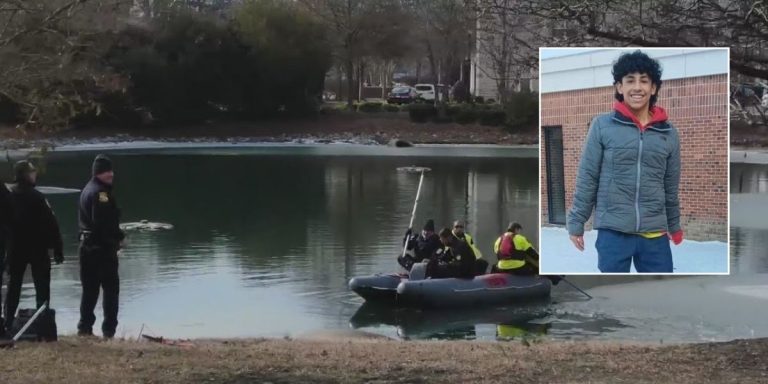Sen. John Fuller, a Republican from Whitefish, is preparing to introduce Senate Bill 164. This bill aims to make it a serious crime to provide or obtain certain medical care for transgender youth.
A doctor won’t be able to repair a cleft lip or perform a circumcision on a baby if Senate Bill 164 becomes law, according to one healthcare worker.
Another doctor mentioned that if the bill becomes law, a child with scoliosis won’t be able to receive treatment.
Many people who spoke shared that suicide rates among transgender kids are likely to rise.
On January 27, the Senate Judiciary committee listened to discussions about SB 164. This proposed law would make it a crime for parents or doctors to help a child under 16 change their appearance or to give them surgery, puberty blockers, or hormone treatments to support a transgender child’s identity.
Sen. John Fuller, R-Whitefish, sponsored the bill, which comes with a penalty of up to five years in prison or a $10,000 fine, or up to 10 years and $25,000 if a “child suffers serious bodily injury.”
In 2023, the Montana Legislature approved Senate Bill 99, which was signed by Governor Greg Gianforte. This law made it illegal for transgender youth to get gender-affirming care.
The ACLU of Montana filed a lawsuit for the plaintiffs and also fought SB 164.
On Monday, Fuller said that the Montana Supreme Court already decided SB 99 is illegal. However, Derek Oestreicher from the Montana Family Foundation pointed out that the court has only given a temporary hold on the law for now.
Fuller said his plan is different because it changes a different part of the law that deals with putting children’s safety at risk.
Members from the Montana Family Foundation and the Montana Medical Freedom Alliance were some of the few people who spoke in favor of the bill.
Oestreicher stated that gender dysphoria, which is when someone feels that their actual sex doesn’t match their gender identity, is a very complicated and personal issue. The bill aims to protect children from treatment that could change their lives in big ways.
“This legislation is critical to protecting Montana children from harmful and irreversible medical interventions,” Oestreicher said.
In December, the Montana Supreme Court decided that SB 99 probably goes against the state’s right to privacy. The law is on hold for now while the case is ongoing.
During the meeting on Monday, several medical professionals, including counselors and an emergency room doctor, spoke out against the bill. They said doctors must give the best care to patients, and this new law could make doctors and parents criminals for providing needed treatment. This might also lead to more children thinking about suicide.
Dr. Cathy White quit from being a pediatrician, but she went back to work because there weren’t enough doctors in Butte. White said that if the bill is approved, supplies will increase.
Some transgender kids do not feel any discomfort with their bodies. However, White has had patients who tell her, “If my body keeps changing like this, I’m going to harm myself.”
White stated that the decision to use puberty blockers is serious. They’ve been used for many years, and she will stop working if the bill is approved.
“I’m too old to take the risk of a felony if this law goes through, so I would stop working in Montana,” said White, who used to be president of the Montana Chapter of the American Academy of Pediatrics.
The Movement Advancement Project says that 24 states, including Montana, have bans on the best care for transgender kids, although not all of these bans are currently active. MAP is a nonprofit group focused on study that promotes equality.
Dr. Lauren Wilson from the Montana Chapter of the American Academy of Pediatrics shared with the committee a list of 43 medical groups, including the American Medical Association, that support medical care for transgender patients and oppose laws that make it illegal.
Wilson, also speaking for the Montana Academy of Family Physicians, told the committee it’s important to recognize transgender and intersex people have existed across cultures and throughout history.
There isn’t just one way for young people to get gender-affirming care, Wilson said. Sometimes, supporting a child means letting them choose a different haircut or a new name.
At a big children’s hospital, 65% of teens visiting a gender clinic did not receive any medication or treatments, according to Wilson. Only 7% got puberty blockers, and 35% received hormones.
Children don’t have surgery, and only 25% to 35% of transgender people have ever had surgery, according to Wilson.
“Wilsom said that bills like this are based on misunderstandings about gender-affirming care that are being spread across the country.”
Opponents who spoke include Planned Parenthood of Montana, the Montana Hospital Association, the Montana Primary Care Association, a member of the Montana Psychiatric Association, the Women’s Foundation of Montana, and a preacher.
Faye Wilde mentioned that before she became a transgender woman, she was a transgender kid. She believes that if she had been able to use puberty blockers earlier, she would have experienced less bullying.
Wilde called the bill unfair and clearly against the Constitution. She said that transgender people have always been a part of Montana and will continue to be.
“Wilde said, ‘You can’t force us back into hiding, into the grave, or make us disappear through laws.'” “We are here and will stay here.”
The bill doesn’t have a financial estimate, but Kelsen Young from the Coalition Against Domestic and Sexual Violence said it would be expensive for public attorneys and child protection services.
Young said the group strongly opposed the bill. Some parents are afraid to speak out against it because they worry they might be punished, said Young, who is a mother and grandmother.
“Please know that this is a life and death situation,” Young said. “It’s upsetting to make a felony out of parents trying their best in tough situations, especially for those of us who help children.”
Anna Louise Peterson, a licensed clinical professional counselor, has given support to transgender, nonbinary and intersex clients for the last 25 years.
“I haven’t seen any cases where the treatment plan has harmed any of my clients.” Actually, it’s the reverse. “It has helped them succeed,” Peterson said.

Shawn Reagor from Bridger Care, Montana’s biggest nonprofit health center for reproductive and sexual health, said the bill is meant to stop treatments that can save lives.
Reagor stated that it impacts less than 0.1% of the country’s population, which is fewer than 3,000 people, and that the plan is a waste of time and money.
“The government shouldn’t interfere between parents, teenagers, and their trusted doctors,” Reagor said.
Erin Laws from the Montana Medical Freedom Alliance supports the bill, saying that voters made it clear in the last election that they wanted to go back to “common sense” and traditional principles.
Laws noted that a doctor got almost $10 million from the U.S. government for a study on puberty blockers but did not share the complete results.
“She didn’t want to share the findings because she was worried they could be misused,” Laws said.
The committee did not act on the bill right away on Monday.







Leave a Comment